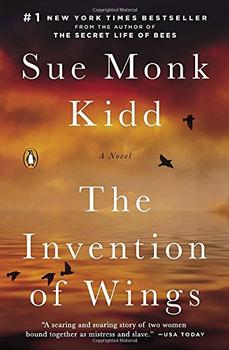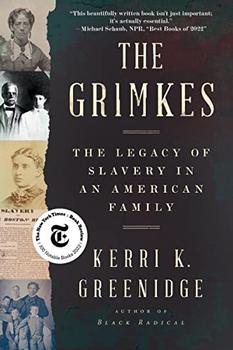Summary | Excerpt | Reading Guide | Discuss | Reviews | Beyond the book | Read-Alikes | Genres & Themes | Author Bio

This exquisitely written novel is a triumph of storytelling that looks with unswerving eyes at a devastating wound in American history, through women whose struggles for liberation, empowerment, and expression will leave no reader unmoved.
Writing at the height of her narrative and imaginative gifts, Sue Monk Kidd presents a masterpiece of hope, daring, the quest for freedom, and the desire to have a voice in the world.
Hetty "Handful" Grimke, an urban slave in early nineteenth century Charleston, yearns for life beyond the suffocating walls that enclose her within the wealthy Grimke household. The Grimke's daughter, Sarah, has known from an early age she is meant to do something large in the world, but she is hemmed in by the limits imposed on women.
Kidd's sweeping novel is set in motion on Sarah's eleventh birthday, when she is given ownership of ten year old Handful, who is to be her handmaid. We follow their remarkable journeys over the next thirty five years, as both strive for a life of their own, dramatically shaping each other's destinies and forming a complex relationship marked by guilt, defiance, estrangement and the uneasy ways of love.
As the stories build to a riveting climax, Handful will endure loss and sorrow, finding courage and a sense of self in the process. Sarah will experience crushed hopes, betrayal, unrequited love, and ostracism before leaving Charleston to find her place alongside her fearless younger sister, Angelina, as one of the early pioneers in the abolition and women's rights movements.
Inspired by the historical figure of Sarah Grimke, Kidd goes beyond the record to flesh out the rich interior lives of all of her characters, both real and invented, including Handful's cunning mother, Charlotte, who courts danger in her search for something better.
This exquisitely written novel is a triumph of storytelling that looks with unswerving eyes at a devastating wound in American history, through women whose struggles for liberation, empowerment, and expression will leave no reader unmoved.
The relationships between the characters in The Invention of Wings and their struggles – both real and imagined – bring a deeply polarized time in American history vividly to life. This is a page-turning narrative, with intricate plot twists, by a truly riveting storyteller...continued
Full Review
 (530 words)
(530 words)
(Reviewed by Judi Sauerbrey).
Among the many unifying symbols in all the intertwining relationships that course through The Invention of Wings, one of the most important concerns is not another person but a quilt.
"This a story quilt," Mauma Charlotte tells her daughter Handful. "My mauma made one and her mauma before her. All my kin in Africa...kept their history on a quilt." Later, as Handful stitches the appliquéd squares together, she begins to understand just how much of her mother – her earlier life in Africa, her experiences with slavery – is in the quilt. "Mauma had sewed where she came from, who she was, what she loved, the things she suffered, and the things she'd hoped. She'd found a way to tell it."
In her book, Stitched From the Soul:...

If you liked The Invention of Wings, try these:

by Kerri K. Greenidge
Published 2024
A stunning counternarrative of the legendary abolitionist Grimke sisters that finally reclaims the forgotten Black members of their family.

by Delia Owens
Published 2021
Winner of the 2018 BookBrowse Debut Author Award
How long can you protect your heart?